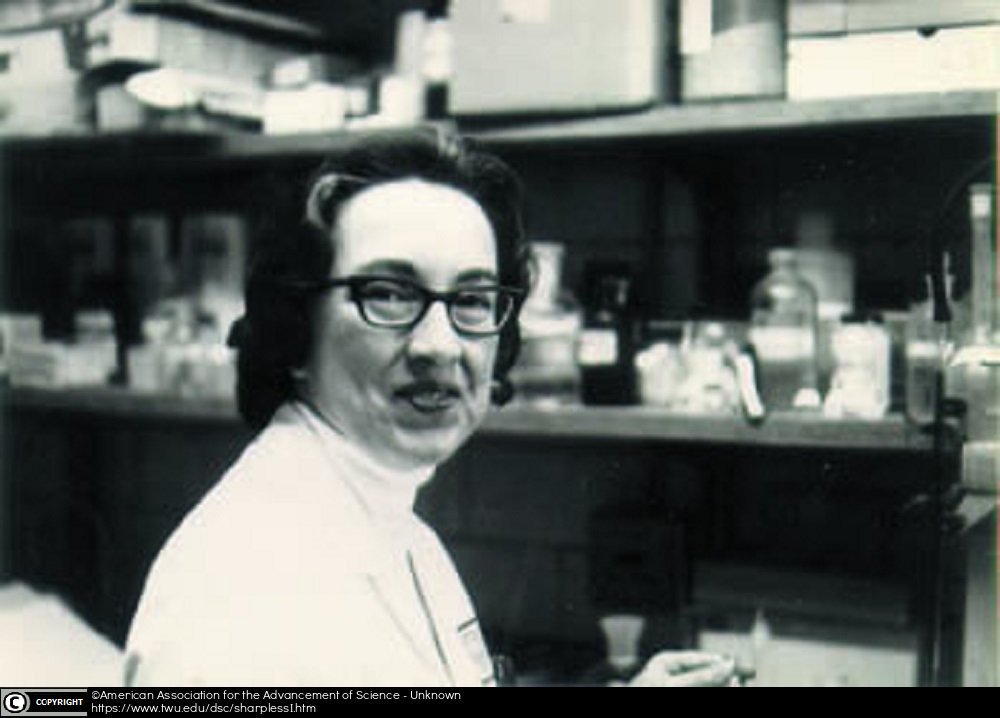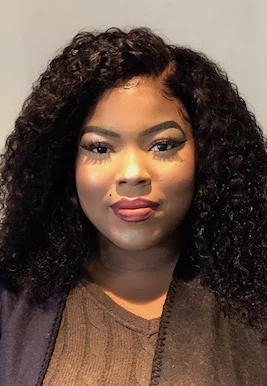By Neyeah Watson
Women and people with disabilities have been historically underrepresented in science. In 2014, individuals with hearing loss compromised only 1.2% of Scientific & Engineering degree recipients. Women represented only 29% of the science, technology, engineering, and mathematics (STEM) workforce as of the same year.
While these statistics remain low, women and people with disabilities have seen overwhelming growth in opportunity in the past 50 years, which we can attribute changes in policy, personal attitudes, and the success of some exceptional individuals. One such pioneering individual was Nansie Sharpless, Ph.D., a biochemist who lived with bilateral hearing loss. HHF has chosen to highlight her victories this Women’s History Month. Her motivation to push barriers strengthened the confidence society has in women in science today.
Sharpless was born in Pennsylvania in 1932. Though this year saw breakthroughs for women, such as the election of the first female Senator, Hattie Wyatt Caraway, and Amelia Earhart becoming the first woman to fly solo across the Atlantic Ocean, limitations remained. Women’s suffrage had just become a law 12 years prior, and the Equal Rights Amendment, which mandated gender equality and prohibits discrimination on the basis of sex, did not yet exist. During childhood, Sharpless gravitated toward science, mathematics, and education. Tragically, at 14 Sharpless contracted meningitis, a disease that was still considered fatal at this time. Sharpless recovered but was left with a profound hearing loss in both ears.
Credit: American Association for the Advancement of Science
Sharpless’ hearing loss did not halt her academic goals despite the lack of accommodations for students with disabilities at this time. The Education of All Handicapped Children's Act—which mandated schools to provide students with learning, mental and/or physical disabilities equal access to education and to protect them from harassment and discrimination—was not passed until 1975.
Still, Sharpless defeated the odds. In 1960, only 35% of the total bachelor’s degrees achieved were women. In comparison to today, over 57.34% of total bachelor’s degrees are women. In 1954 Sharpless earned a bachelor’s degree in zoology from Oberlin College. Although Sharpless thrived in school academically, she struggled to listen in the classroom. She was fortunate to have classmates who assisted with her notetaking.
Sharpless faced similar communicative challenges in her pursuit of a master’s degree in medical technology at Wayne State University. She attended meetings, learned innovative techniques, and developed strategies to alleviate her learning obstacles.
At Wayne, Sharpless’ strong educational performance was unprecedented—and unsupported. Administrators were discouraging; in fact, the director of admissions for Wayne State University warned Sharpless she’d face unusual scrutiny in which she would be expected to achieve a perfect grade point average in order to prove that she could handle the work. Sharpless was undeterred and went on to receive her doctorate from Wayne as well.
After graduation, Sharpless was hired to conduct biochemistry research at Mayo Clinic, where she focused on the correlations between chemicals and mental disorders. Some of her most notable work includes the studying of the L-dopa metabolism in spinal fluid and its relationship with Parkinson’s Disease. Her research showcased the patterns of dystonia, a movement disorder, in response to L-dopa therapy for Parkinson's disease.
Sharpless was also fortunate to defy expectations by joining the Albert Einstein Medical College faculty as an associate professor. She was later promoted to the position of Chief of the Albert Einstein Medical College’s Neuropsychopharmacological laboratory.
Sharpless passed at the age of 55 while still serving in the Chief position at the Albert Einstein Medical College. In her career, Sharpless published over 50 papers and penned 11 books. Through her triumphs, Sharpless illustrated that hearing loss did not limit her. She was able to utilize her passion for science to become a dominant voice within research and advancement for women and for individuals with disabilities.
March celebrates the journeys of resilient women around the world. Gender and disabilities have presented challenges to individuals, especially before protective laws were in place. Sharpless fought to be outside of the statistic, seeking her purpose within what she loved most—science.
HHF intern Neyeah Watson studies communications at Brooklyn College.



